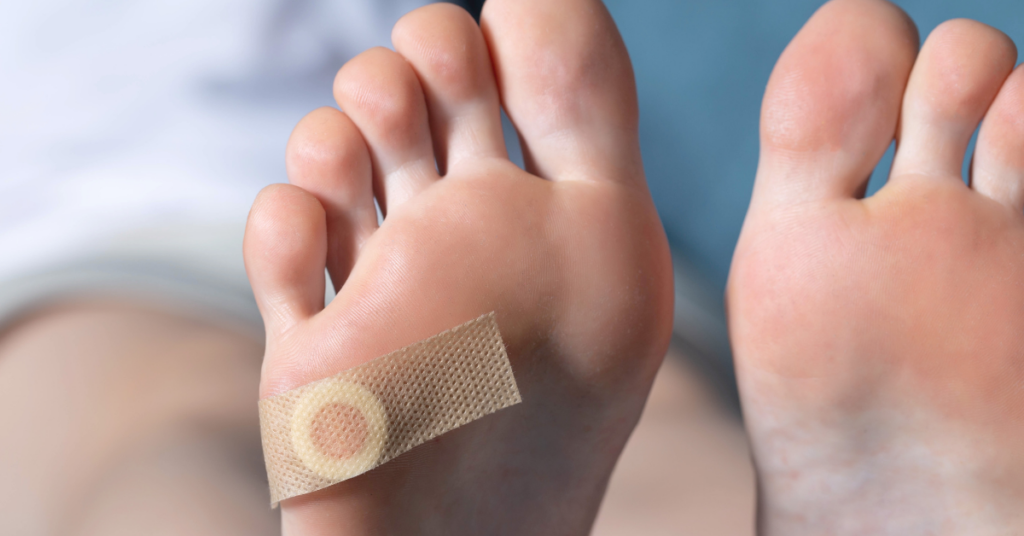Plantar warts are a common foot condition caused by a viral infection. They’re usually harmless but can easily spread to others if not managed properly. Preventing transmission involves simple but fundamental steps. Here’s more information on how to prevent foot warts from spreading to others:
Understanding How Plantar Warts Spread
The HPV virus that causes foot warts spreads through direct skin-to-skin contact or indirect contact with contaminated surfaces. Walking barefoot in public areas like swimming pools, locker rooms, and communal showers creates a high risk of transmission. The virus enters through small cuts or breaks in the skin on your feet.
Foot warts are most contagious when they first appear and contain active viral particles. The virus can also spread from one area of your foot to another through scratching or touching the wart. Sharing personal items like towels, socks, or shoes with someone who has plantar warts increases transmission risk. People with weakened immune systems or existing foot injuries are susceptible to contracting and spreading the virus.
Practicing Good Foot Hygiene
Maintaining good foot hygiene is key to preventing the spread of plantar warts and promoting overall foot health. Follow these key steps to reduce the risk of infection:
- Wash your feet daily with soap and water, making sure they are thoroughly cleaned.
- Dry your feet completely, particularly between the toes, to prevent a moist environment where viruses thrive.
- Wear clean, breathable socks and change them daily to maintain hygiene.
- Avoid walking barefoot in public areas, such as locker rooms, pools, or communal showers.
- Do not share personal items such as socks, shoes, or towels with others to reduce the risk of transmission.
- Inspect your feet regularly for any abnormalities, including warts, and seek prompt treatment if needed.
By adopting these practices, you can effectively minimize the risk of developing foot warts while supporting the overall health of your feet.
Protecting Others From Exposure
Covering plantar warts with waterproof bandages or tape creates a barrier that prevents the virus from spreading to surfaces or other people. Change these coverings daily and after they become wet. Make sure the adhesive forms a complete seal around the wart to prevent viral particles from escaping.
Avoid walking barefoot in public areas, especially when you have active foot warts. Wear flip-flops or water shoes in swimming pool areas, locker rooms, and public showers. This protects you from picking up other infections and prevents you from leaving viral particles on surfaces where others may contact them. Never share personal items that come into contact with your feet. This includes towels, socks, shoes, nail clippers, and pumice stones.
Seeking Professional Care When Needed
Professional treatment becomes helpful when plantar warts persist, multiply, or cause significant discomfort. A podiatrist can provide effective treatments and reduce the time you remain contagious. Swift Microwave Therapy, cryotherapy, and laser treatments can eliminate warts quickly than home remedies.
Early professional intervention also prevents the warts from growing larger or spreading to other areas of your foot. Large or deeply embedded warts become difficult to treat and remain contagious for longer periods. Treatment also reduces the discomfort that may cause you to change your walking pattern and create other foot problems.
Explore Effective Plantar Warts Treatments
Preventing plantar warts from spreading requires consistent attention to foot hygiene, protective measures in public spaces, and professional treatment when necessary. These strategies work together to contain the infection and protect your family and community from transmission. For concerns about foot warts, contact a qualified podiatrist near you and book an appointment to explore advanced treatment options like Swift Microwave Therapy.

